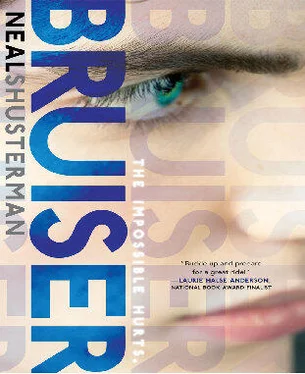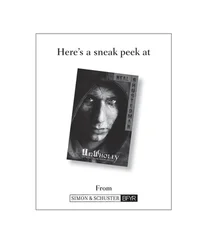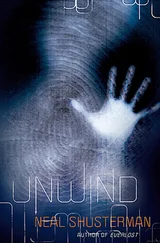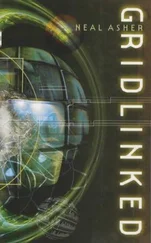I close my eyes and stay limp, bouncing and flopping around the shed, lettin’ him kick, and hit, and pull, and tug. I even start smiling, like it’s all just a whole lot of rocking in a crib. You can’t hurt me, Uncle Hoyt, no matter how foul you get, because I’ve got Brew to protect me. And he’ll never let you hurt me. Never never never.
I stayed out till dark,
And my brother went home alone,
To face our worst nightmare.
Now I stand at the shed window
Until my legs give out.
My uncle is a weapon turned on my brother.
Now turned on me.
“Let the boy take his own due.”
But I won’t allow it, and he knows it.
Is it me my uncle beats?
Is his foot so swift,
Are his hands so furious
Because he knows it’s coming to me?
For being disloyal?
For wanting more than this?
Or is he furious at the futility,
Furious at knowing
He will never teach us to respect him?
The muddy ground,
All fours, I roll to my side,
Ear in mud,
Knee to chest,
I swallow my screams.
Forcing them into my stomach.
Digest the pain.
Dissolve it,
Then sweat it out,
Piss it out,
Wetness spreading in my jeans,
As foul as my uncle,
Who I should hate,
But can’t.
Who I should stop,
But can’t.
This wiring inside me is all wrong.
I’m built to receive.
I can’t kill an ant,
I can’t salt a snail,
I can’t raise a hand to my uncle,
My wiring won’t let me.
So I lie in the mud,
In my pain,
In my weakness,
And my fury at him
Is nothing compared to my fury at myself.
I am the crumbling aftermath of the earthquake.
The dust settling over the ruins.
Three minutes and it’s over.
I rise, battered but not broken.
Never broken.
It will take more than my uncle to do that.
I reach for the rusted knob,
Opening to find Cody,
His hair a wild mess,
Eyes frightened and lost,
But not a mark upon him.
And Uncle Hoyt
Has crumbled, too.
Ruined and rocking,
A baying, keening ball of misery,
Kneeling in the center of the shed,
Gripping himself as if he’s the one in pain.
“I’m sorry, I’m sorry, I’m sorry!” he wails.
“I didn’t mean it! I didn’t mean any of it.
I’m sorry, I’m sorry, I’m sorry!”
Always the same.
He means it, too.
He means it in the moment.
But that doesn’t change what he’s done.
To Cody. To me.
I take my brother and close the door on Uncle Hoyt,
Escaping from the epicenter
Because I can feel my uncle’s pain,
Like worms in my flesh.
But if I can get far enough away,
Fast enough away,
His agony will be his, and his alone.
Our bedroom is my sanctuary.
I take off my shirt. I lie facedown on my bed.
We begin the ritual. Cody and I.
We both know it well.
A warm, wet cloth begins it.
He mops it across my back.
Gently tracing reconnaissance of the wounds.
“Is there bleeding?”
“No,” Cody says. “A little.”
He wipes my face,
Around my swelling eyes,
And in his eyes I see how bad it is.
A second cloth,
This one with alcohol.
Cold and stinging.
I swallow this pain, too.
The next cloth is dry.
Cody carefully blots,
He assesses,
He’s strategic with Band-Aids,
Familiar with the shapes and sizes.
“You want a shirt?”
“Not yet.”
He puts a towel across my back,
Maybe to keep me warm,
Maybe to hide the scars of battle.
“They should be mine.”
“Don’t say that. Don’t ever say that.”
He nods and begins to cry,
But it only lasts an instant,
Because before a single tear falls
His sorrow becomes mine,
A heaviness in my heart,
A salty sting in my eyes.
“I want to be sad,” he says. “Can’t you let me feel sad?”
But I can’t do that.
I’m not wired that way.
I dream of the morning,
And how it will unfold.
Uncle Hoyt never remembers;
It’s very convenient.
He’ll grasp just enough to know he did something wrong,
But not enough to take responsibility for it.
Cody will avoid his eyes at breakfast,
Studying his Alphabits like they’re a spelling test;
But I’ll hold my uncle’s gaze,
Making him look away,
Because this time was worse than all the others,
And he’ll know,
And he’ll have to remember,
“Let me see it,” he’ll say.
He’ll reach for my shirt, but I’ll pull away,
The wounds are my dignity;
I will not share them.
And that’s when he’ll get scared.
“You won’t tell no one, right?
If you do they’ll ask questions,
You’ll have to give answers,
They’ll take you away,
Then you and your brother,
They’ll split you both up,
That’s what they do,
Is that what you want?
So you don’t gotta tell,
’Cause who would believe it,
This thing you can do?
And what happened last night
Won’t happen again,
See, I’ve learned my lesson,
I’m making amends,
We’re a family here,
It’s nobody’s business,
A family, Brew,
Let’s keep it that way.”
I’m ready to face him when morning comes,
Ready for all those things he’ll say.
I rise with bold and righteous indignation,
The wounds on my body an accusation,
I’m ready!
But Uncle Hoyt cannot be roused,
His stupor extends into the day,
His snores shake the house,
And confronting a sleeping man
Is no confrontation at all,
So I get Cody breakfast
And gingerly slip my backpack
Over aching shoulders,
Then we head off to school,
Both of us knowing
That we won’t tell a soul.
The way I see it, the impossible happens all the time; but we’re so good at taking it for granted, we forget it was once impossible.
I mean, look at airplanes—come on, how could they not be impossible? These gigantic metal things you’d need a massive hydraulic winch just to get off the ground? Please! They used to say, “If man were meant to fly, he’d have wings”; but it didn’t stop poets from dreaming, did it? Then a few hundred years ago a man named Bernoulli came up with an elegant mathematical principle about pressure, air density, and velocity—and bingo! Poetry became poetry in motion, and now objects bigger than blue whales are filling the friendly skies, thank you very much.
I think small children are far more in tune with the wonder of it all, far better than the rest of us more “sensible” and “mature” folk. They look at every little thing, from fireflies to lightning, and stand in awe that such things exist. Sometimes we need to be reminded that that’s how we should feel…but, on the other hand, if we felt that way all the time, we’d just marvel at the fireworks and never get anything done.
I will reluctantly admit that I am also a victim of species numbness. I, too, have taken the wondrous and have magically made it boring. Fireflies contain reactive phosphor; lightning is just static. Yawn.
I will also admit that Tennyson and I came to accept Brewster’s mystical talent far too quickly. Even though I tried to hold on to the wonder, I couldn’t. The fact that he could heal—and steal—the hurts of others became a commonplace fact. That was my first mistake. Because once you stop marveling at that firefly you caught in a jar, it sits on a shelf with no one to let it out.
Читать дальше











